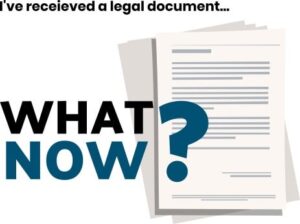Electronic contracts
A document in electronic form, such as one sent via email or over the internet, will be taken to be in writing (and signed) if certain requirements are met.
Section 14 of the Electronic Transactions (Queensland) Act 2001 (Qld) states that a signature requirement will have been met if:
- a method is used to identify the person and to indicate their intention in relation to the information provided;
- the method was either as reliable as appropriate in the circumstances, or was proven to have fulfilled the functions above; and
- the recipient consents to receiving the signature that way.
Section 11 of that Act states that a requirement to give information in writing will have been met by giving the information by electronic communication if:
- at the time the information was given, it was reasonable to expect the information would be readily accessible so as to be useable for subsequent reference; and
- the recipient consents to the information being given by electronic communication.
Exceptions to the Statute of Frauds
There are a number of exceptions to the Statute when only an oral agreement exists, even though the Statute would usually require the agreement to be in writing to be enforceable.
An example is when a party relies on an oral agreement and partially performs their obligations. The courts will usually rule that the oral agreement is enforceable, up to the extent that the contract has been completed.
This doctrine of “part performance” overcomes injustice for that party by allowing equitable relief.
Another example is an implied easement on land. This is an easement not created by grant or reservation or statute but implied by common law so that the land can continue to be used in a certain way.
Effect of non-compliance with the Statute of Frauds
A failure to comply with the Statute of Frauds makes a contract unenforceable rather than void. So, it is possible for parties to choose to proceed with the contract.
Pavey & Matthews Pty Ltd v Paul (1987) 69 ALR 577
Licensed builder, Pavey & Matthews, made an oral contract with Paul to do certain building work on a cottage. Paul made a part payment for the work and refused to pay the balance. When Pavey & Matthews demanded it, Paul claimed that the contract was unenforceable because it was not in writing as was required by section 45 of the Builders Licensing Act 1971 (NSW).
The High Court ruled that Pavey & Matthews was entitled to restitution because Paul had accepted the work that had been done and Paul would otherwise be unjustly enriched at Pavey & Matthews’ expense. Their Honours Mason and Wilson JJ considered that the purpose of the provision was to “protect the building owner against spurious claims by a builder by preventing the enforcement by him of nonconforming contracts”. They continued, however, that “it would be going a very long way indeed to assert that the statutory protection extends to a case where the building owner requests and accepts the building work and declines to pay for it on the ground that the contract fails to comply with the statutory requirements”, concluding that an “interpretation that serves the statutory purpose yet avoids a harsh and unjust operation is to be preferred”.
How Gibbs Wright Litigation Lawyers can help
If you have concerns over the validity of a contract or any other contract matters, you can discuss them with our contract lawyers during a no-obligation, confidential consultation today.




